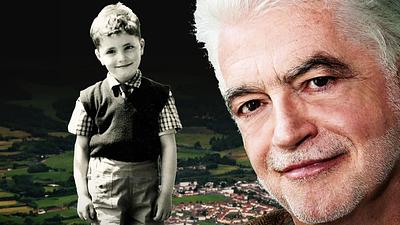The subtitle of my book is A Love Letter tae an Ayrshire Childhood and to paraphrase Lewis Grassic Gibbon in Sunset Song it is a fond recalling of the 'far off youngness' of my life. Mine was the last of the pre-television generations so my first decade was lived in a Scottish rather than a global village. My family had belonged to Galston for generations as weavers, stonemasons and miners, so the book was a celebration of their culture, as well as a record of my own personal experiences.
My time in life was also important. When you reach three score years and ten, you realise how exotic the past appears to the modern generation, so I was anxious to preserve a perspective on the rich culture I inherited. I hope I have added to the culture with the book.
Mair than a memoir
Almost two-thirds of the book is memoir but I felt that some of the ideas could be conveyed better as short stories or sketches that use the imagination and creative writing to convey the recent past. Those stories on mining history are very much based on oral history I collected from people in the area and oral traditions passed on to me from my extended family. I was very conscious of John Galt’s book Annals of the Parish when I was writing it, aware that I was attempting to do for an Ayrshire parish in the mid-20th century what Galt achieved so brilliantly for his fictional parish of Dalmailing in the late 18th century.
The opening chapter after the Prolog is a mixture of memoir, autobiography and short story e.g. and describes the way the community looked after a local worthy with severe educational disabilities. There’s even a rather risqué tale with echoes of the Scots bawdry in Burns’ Merry Muses of Caledonia.
The avoidance of being couthie
While writing I was aware of the fine line between hard truth and couthie nostalgia and was anxious to avoid the latter. Coarse sexism, class prejudice, and casual racism and sectarianism are all depicted against the backdrop of what was yet a remarkably homogenous community, one where even an English accent was a rarity.
Fremmit frissons
I was aware too in writing that I could add other layers and textures to the book by recounting the trips I made when I was 15 years old and hitchhiking to France and Germany, and a year later going on a Scottish Schools trip to Russia. There I first came across the story of the great John Maclean celebrated in the songs of Hamish Henderson. I have never been to Cuba, but me and my P7 pals organised the last game of football to be played on planet earth, in case the Cuban Missile Crisis of 1962 blew the world to smithereens.
That story is combined with the remarkable coincidence that it was a Scot, and a friend in later life, Paul Scott who was the man on the ground in Cuba who actually informed the Americans that the missiles had in fact been moved and were no longer a threat to the United States. The other exotic place I did get to back then was Bowhill in West Fife, home of my mother’s family. That is where one of the most memorable incidents I have ever experienced took place, which took me into a fey realm of dire prophecy that came to pass a few weeks after I was told about it.
Why write it in Scots?
At a conference for writers in lesser-used languages in Luxembourg, which I attended, someone asked provocatively, "Why do you choose to write in these languages when you are all bilingual and could write in the principal languages of Europe?" Pierre‑Jakez Hélias replied for all of us when he said that it was not a matter of choice, he was enceinte, pregnant with Breton, and his creativity had to be given birth in that language.
For me, to stay true to the people I came from and the culture I inherited, I had to write in the living language of my time and place, Scots. If I had written it in English, it would have reached a much bigger audience, but what good is there in writing a love letter in English to a community whose cherished mither tongue is Scots?
